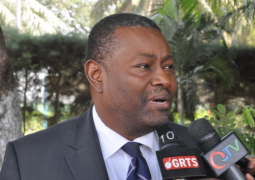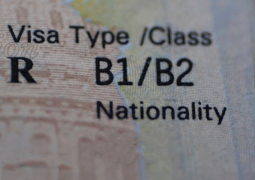
The project, designed to uplift Gambian women and girls, became a symbol of administrative failure when auditors uncovered that KMF Technologies Company Limited, an IT service provider, was awarded a $1.3 million contract to supply 14 Toyota vehicles despite not being registered as a vehicle dealer.
“KMF Technologies is neither licensed nor authorized to sell treated vehicles in The Gambia,” Njie told lawmakers, adding that the legitimate distributor, CFAO Gambia Limited, was bypassed entirely.
The audit revealed that KMF Technologies allegedly bought 10 of the vehicles from CFAO Gambia Limited through a middleman, AYK Rentals, and imported four others through unclear channels. “Even worse, standard procurement procedures were ignored, raising serious concerns about value for money and integrity in the bidding process.”
When questioned, KMF CEO Kaifa M. Fall claimed the cars were imported “after securing a duty waiver” from the Ministry of Finance
“Each vehicle reportedly cost $92,837, far above the market rate of $52,901. The audit estimated a potential overpayment of $10.3 million, describing the transaction as financially reckless and grossly non-compliant with World Bank and GPPA guidelines.”
Despite KMX’s commitment to deliver the vehicles by December 2023, the audit confirmed they were only delivered in February 2024 further delaying key project activities.
“This failure directly impacted the project’s implementation timeline,” Njie said, noting that it highlighted weak contract monitoring.
The audit also discovered that key procurement documents were missing, including needs assessments and justification for increasing the vehicle budget from $750,000 to $1.3 million. “Even more troubling, bid evaluation results appeared to have been manipulated, suggesting collusion between KMX and members of the Contract Committee.”
According to the report, invoices were issued to KMF before the bidding process was even concluded, a clear indicator of bid rigging and favoritism.
“This undermines fairness, transparency, and competition - core principles of public procurement,” Njie stressed.
The auditors warned of potential conflicts of interest involving officials of the Project Coordination Unit (PCU) and the Contract Committee. They urged the Permanent Secretary at the Ministry of Health to conduct an independent investigation and recover all overpaid funds.
The NAO further recommended that all future contracts under SWEDD+ be awarded only to qualified, authorised suppliers and that procurement staff undergo training on ethics and fraud prevention.
The report also found that 14 Toyota vehicles meant for project fieldwork were instead distributed to senior government offices, including the Ombudsman, Vice President’s Office, and Ministry of Justice, rather than the intended women’s empowerment units.
Auditors said this misallocation “defeated the purpose of the project and reflected a disregard for accountability.”
The NAO concluded that the procurement process was riddled with irregularities, lacked transparency, and failed to comply with both the Gambia Public Procurement Act 2022 and World Bank procurement standards.




